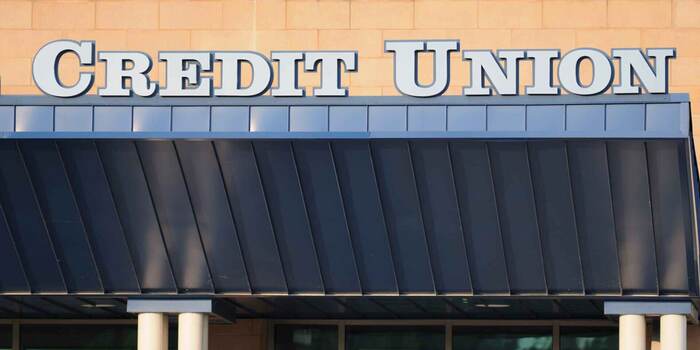Tax season can be a daunting time for anyone, but for freelancers, it can feel like navigating a maze blindfolded. As someone who's been in the freelance game for a while now, I've made my fair share of tax mistakes early on. Let me share these lessons with you so you can steer clear of the same pitfalls.
Ignoring Quarterly Payments
When you're freelancing, there's no employer withholding taxes from your paycheck. It's all on you to set aside money for taxes. One common mistake I made early in my freelancing career was ignoring quarterly tax payments. Unlike traditional employees who pay taxes once a year, freelancers are often required to pay estimated taxes quarterly. Ignoring these payments can lead to a hefty tax bill in April. Make sure you deduct taxes from every paycheck you receive or get advice from a tax expert to figure out how much you should pay each quarter.
Failing to pay estimated taxes can result in penalties and interest charges from the IRS, adding unnecessary expenses to your tax bill. By staying on top of quarterly payments, you not only avoid these penalties but also ensure that you have enough funds set aside to cover your tax liability at the end of the year. Consider using accounting software or working with a tax professional to help you calculate and make these payments accurately and on time.
Underestimating Deductions
As a freelancer, you may be eligible for various deductions that can significantly lower your tax bill. However, I learned the hard way that underestimating deductions can cost you. Keep meticulous records of your business expenses, including equipment purchases, office supplies, and even a portion of your rent if you work from home. Don't overlook smaller deductions either, such as mileage for business-related travel or professional development expenses. Every deduction adds up and can make a big difference in your tax liability.
Learn the tax rules so that you can optimize your deductions, and if needed, seek advice from a tax specialist. They can assist you in determining all of the deductions that you qualify for and make sure you're utilizing them to the fullest. To help you stay on top of your spending all year long, think about purchasing accounting software or employing a bookkeeper. You can reduce your tax liability and retain more of your hard-earned money by being proactive and organized.
To further emphasize the importance of maximizing deductions, let's delve deeper into some commonly overlooked expenses that freelancers can claim:
Home Office Deduction
In the event that you work from home, you could be able to write off some costs associated with your home office, like a percentage of your utilities, internet, and rent or mortgage. Your home office must be your principal place of employment and be utilized only for business in order to be eligible.
Health Insurance Premiums
It's common for freelancers to have to buy their own health insurance, but fortunately, you can write off the payments as a business expense. Since health insurance may be a substantial price for many freelancers, this deduction can be especially beneficial.

Self-Employment Taxes
Unlike traditional employees, freelancers are responsible for paying both the employee and employer portions of Social Security and Medicare taxes, known as 0073elf-employment taxes. However, you can deduct half of these taxes on your tax return, helping to offset the impact of this additional tax burden.
Mixing Personal and Business Finances
It's tempting to use your personal bank account for all transactions, especially when you're just starting as a freelancer. However, mixing personal and business finances can create a headache when it comes to tax time. Not only does it make it challenging to track your business expenses accurately, but it can also raise red flags with the IRS. Open a separate bank account and credit card for your freelance business to keep your finances organized and make tax filing a breeze.
Separating your personal and business finances not only simplifies tax preparation but also provides a clear picture of your business's financial health. It allows you to track your income and expenses more efficiently, identify any potential tax deductions, and ensure compliance with IRS regulations.
Additionally, maintaining separate accounts makes it easier to monitor your business's cash flow and identify any areas for improvement. Take the time to set up dedicated business accounts and commit to using them exclusively for your freelance income and expenses.
Failing to Save for Taxes
Perhaps the most significant lesson I learned early on is the importance of saving for taxes diligently. Without an employer withholding taxes from your paycheck, it's easy to spend all your earnings without setting aside money for taxes. However, come tax time, you'll be in for a rude awakening if you haven't saved enough. Make it a habit to set aside a portion of each payment you receive into a dedicated savings account for taxes. Automate this process if possible so you're not tempted to dip into these funds for other expenses.

To ensure that you're saving enough for taxes, consider working with a financial advisor or tax professional to develop a savings plan tailored to your income and expenses. They can help you estimate your tax liability and determine the appropriate amount to set aside each month. Additionally, consider setting up a separate savings account specifically for your tax savings to prevent them from getting mixed up with your other funds. By making tax savings a priority, you can avoid financial stress and uncertainty when tax season rolls around.
Conclusion
Navigating taxes as a freelancer can be challenging, but it's essential to avoid these common mistakes. By staying on top of quarterly payments, maximizing deductions, separating personal and business finances, and saving diligently, you can make tax season a lot less stressful. Learn from my early mistakes, and you'll be on your way to smoother finances and peace of mind as a freelancer.




